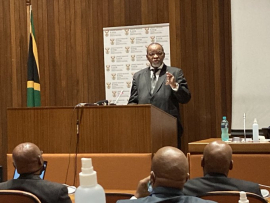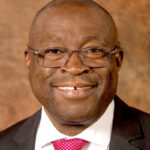Minister of Mineral Resources and Energy, Gwede Mantashe, says the Council for Geoscience (CGS) has a critical role to play not only in the future of mining in South Africa but also to help catapult South Africa to the forefront of the green hydrogen economy.
He was speaking at the summit of the CGS held in Durban on Tuesday.
The Minister said he expects the CGS to work with the private sector to in order to bring South Africa to its true geological potential.
“As the world economic trajectory demands new suits of minerals deemed to be critical for lower carbon emissions, there has never been a better time for the geosciences community to work together and prepare to unravel the possibilities of South Africa as a source of these minerals in the manner that optimises the benefit of the people of the country.
“As we develop various technologies, various minerals that will be used there are in this country. A variety of minerals that will be used even in developing the green economy of the future – hydrogen energy, various minerals including rare earth elements – are in this country and only geoscience can unravel all those minerals and bring them to the fore,” he said.
The Minister added that the CGS needs to play a “more preeminent role” in addressing some societal challenges.
“These challenges include… energy security, just energy transition, sustainable food supply, economic growth, climate change [and] disaster management that arises from national phenomenon such as floods and earthquakes.
“All those incidents and developments in society… only when they happen do we really appreciate fully the value of geosciences. KZN recently experienced the most devastating disaster that demolished houses and infrastructure…[the CGS] came here and applied science to the disaster,” he said.
Furthermore, Mantashe said the CGS is also expected to play a major role in the country’s drive towards infrastructure development.
“The government’s multibillion Rand infrastructure build programme will require CGS and geotechnical community to play an active role in safeguarding critical infrastructure investment. It is essential that infrastructural development is accompanied by sound geotechnical investigations and information.
“It has never been more important for any infrastructure development to consider geotechnical conditions appropriately prior to affecting such development. It is precisely in this context that the amendment of the Geosciences Act empowered the CGS to review all geotechnical reports and provide appropriate advice to local authorities in consideration of the infrastructure development programme,” he said.












